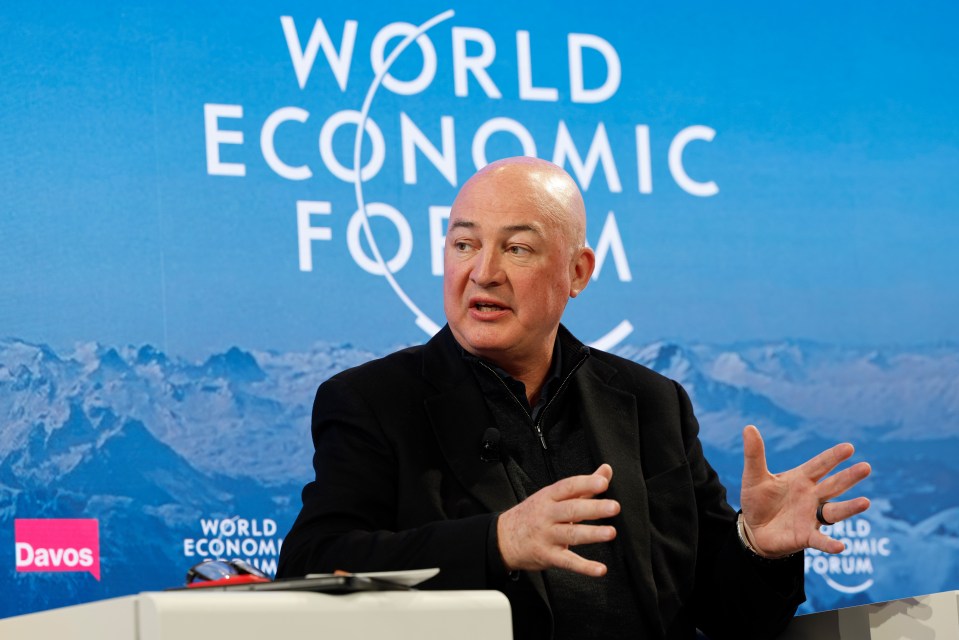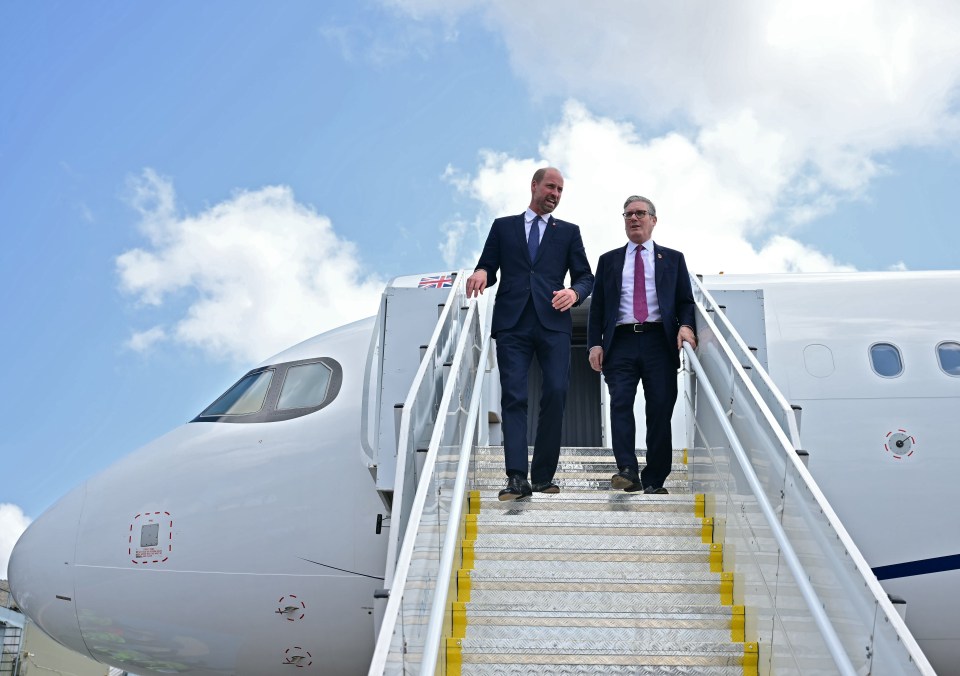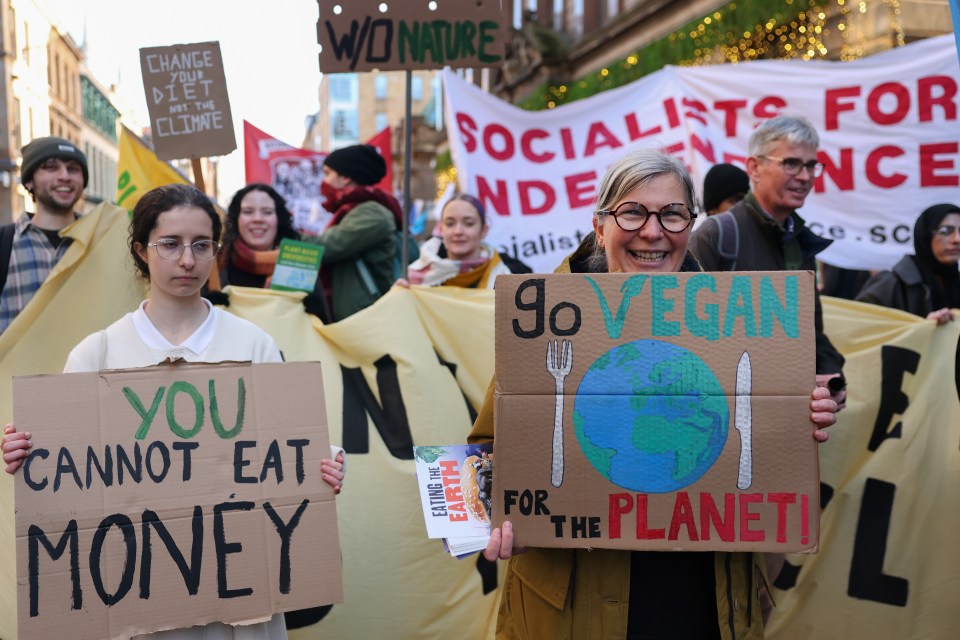Tuesday 18 November 2025 12:27 pm
Share
 Many bosses chose to give COP30 in Brazil’s Belem a miss (Photo by Wagner Meie)
Many bosses chose to give COP30 in Brazil’s Belem a miss (Photo by Wagner Meie)
COP 26 in Glasgow represented a high-water mark for companies flouting their ambitious transition plans and lofty climate credentials. This year’s summit could not be more different, writes Ali Lyon.
Reclining on stage at the 26th COP summit in his native Glasgow, Alan Jope was at home both literally and spiritually.
The Unilever chief executive had spent three years establishing himself as one of the corporate world’s most passionate climate and diversity advocates, vowing to accelerate predecessor Paul Polman’s environmental, social and governance leadership. And with his company a principal partner at the biggest climate summit in history, the Scotsman’s efforts had reached their natural apogee.
“We think there are three existential challenges in the world: climate change, the loss and destruction of nature, and growing inequality,” he told a Bloomberg Green event. “None of these issues are good for our business… so I’ve been delighted to see the representation of business here in Glasgow.”
Corporate presence was – as the ‘Uni-lifer’ observed – hard to miss at the environmental jamboree of the year; one which the then Prime Minister Boris Johnson had billed as the “world’s moment of truth”. Outside the main hangar, pharma giant GSK had installed an inflatable air purifier. Utilities giant SSE had commissioned an entire Imax screening event – called Hydro – devoted to hydroelectric power. And in the world of haute couture, Stella McCartney’s Future of Fashion exhibition showcased her label’s efforts to leverage “the limitless possibilities of material innovation”.
Where have all the suits gone?
Four years on, with the 30th iteration of the annual Conference of the Parties (COP) in Brazil now in its second week, the agenda items that range from youth-led climate forums and fraught political negotiations look similar to those at Scotland’s edition in 2021. Environment ministers, official delegations and third-sector titans are, as they were in Glasgow, also out in force. What is missing, however, are the clean-cut executives and no-cost-spared marketing stunts from the blue-chip firms – and their consultants – that viewed the 2021 summit as the consummate platform for burnishing their green credentials.
“Before, if you weren’t doing something around COP, then questions would be asked,” said one senior corporate affairs executive. “Now it’s totally different.”
“My clients have definitely sent fewer people to this year’s summit,” added a director at a UK-based PR agency. “Expense is a massive reason, but so is the political environment.”
 Alan Jope, chief executive officer of Unilever Plc (Photo by: Stefan Wermuth/Bloomberg via Getty Images)What is COP30?
Alan Jope, chief executive officer of Unilever Plc (Photo by: Stefan Wermuth/Bloomberg via Getty Images)What is COP30?
Organised under the auspices of the United Nations, COP has, for decades, been the world’s best-attended, and most consequential environmental gathering. Since its establishment at a 1992 treaty signed in Rio de Janeiro, an assortment of presidents, prime ministers, chief executives and campaigners have descended on a different city each year to agree how best to limit the effects and extent of what’s become known as the climate crisis.
Over three decades it became a temple to the political consensus which held that the changing climate posed an existential threat to humanity, and that the world – largely via a series of agreements at COP – needed to do everything it could to stop it. Heads of state would use the jamboree as a platform to commit their nations to ambitious transition targets. Campaigners would make hay from the eyes of the world’s science and environmental media being trained on one place at the same time. And executives would trumpet the painstaking but important lengths to which their companies were going to reduce their own contribution to the crisis at hand.
But as the world exited from the pandemic and entered the energy price shock of 2022, that consensus was punctured. Aided by the outbreak of a hot war in Europe – and an aggressive rate-hiking cycle from the western world’s central banks – lawmakers’ priorities evolved from energy sustainability to energy security.
Drill, baby, drill
Initially, that shift happened quietly – and even sheepisly. Or at least it did until, last year, the man vying to be the 47th President of the United States turned climate into one of the most salient topics of the primary and presidential campaigns.
Efforts to boost green energy were, Donald Trump said during the primaries, a “scam”. Instead the US needed to “drill, baby, drill” if it wanted to improve living standards, maintain its position as the world’s largest natural gas exporter and keep energy prices down.
Since taking office in January, the president as followed through on his unstinting rhetoric. He quickly sought to block all offshore wind projects – even those that were very close to completion – and launched a legislative tirade against companies that set ESG targets and strategies.
 Prince William, Prince of Wales and Britain’s Prime Minister Keir Starmer arrive at the Julio Cezar Ribeiro International Airport (Val-de-Cans), ahead of the COP30 (Photo by Ben Stansall – WPA Pool/Getty Images)Political climate keeps firms away from COP
Prince William, Prince of Wales and Britain’s Prime Minister Keir Starmer arrive at the Julio Cezar Ribeiro International Airport (Val-de-Cans), ahead of the COP30 (Photo by Ben Stansall – WPA Pool/Getty Images)Political climate keeps firms away from COP
According to Charlie Tarr, chief executive of corporate affairs consultancy Woodrow, the direction in which Trump has taken his second term is the primary reason for firms’ low-key turnout this year.
“The glossy pavilions, the huge delegations, the climate grandstanding that we’ve seen in previous years is just over,” he says. “Now, we’ve got caution, we’ve got minimalism, we’ve got private conversations. US politics has weaponised climate as a culture war issue. That has fundamentally changed the calculus for corporate visibility.”
Where once firms would once dispatch six or seven senior staff, this year they are sending two, Tarr adds. And where chief executives used to block their calendar months in advance to be seen on a panel with a former presidential candidate or feted naturalist, now they are more likely to delegate that job to their senior sustainability officer.
Read more
COP 30 is a chance for Britain to lead the world in transition finance
One senior PR executive, who worked with several blue-chip firms in the run-up to Glasgow’s COP, said the judgement call Western firms made in 2021 was, if your business wasn’t doing something big around it, consumers and shareholders would demand to know why.
“We had entire COP strategies that fleshed out how we were going to engage with stakeholders, working out the business opportunities on the ground, etc,” she said. “Association with it was almost universally positive.”
Another PR agency director added: “It has dropped off the agenda of, for example, the big asset managers, and big banks who will have occasionally dipped their toe into COPs in the past.”
Logistical and political difficulties
But according to some, the lack of corporate representation is not just down to the fresh political scrutiny emanating from the White House.
Michael Hartt, who leads international affairs at Fleishmanhillard and is advising several firms on their COP 30 communications strategies, said the logistical issues around this year’s summit, which is being held in the heart of the Amazon, are just as important as politics.
“A mix of practical factors…. and wider forces, including political pressure in some countries… means some companies have adjusted their presence,” he told City AM.
And according to others, a patchy track record, and several missteps including controversial locations, meant firms were beginning to lose faith in the value the summit brings to the climate debate, and its track record for delivery amid a testing macroeconomic backdrop.
“There’s no doubt that we’re seeing [clients] row back on COP engagement,” said Imogen Sackey, senior associate director at the Romans. “But I think it reflects a bigger question about COP’s role in global climate leadership.
“[It] feels increasingly abstract… and we’re seeing businesses afraid to break the binary between ‘good for business’ and ‘good for the planet,” she added.
 Demonstrators attend a protest as Glasgow takes part in Global Day Of Climate Action this year in Glasgow, Scotland. Scotland’s Climate March was part of a day of coordinated global action taking place during the UN climate talks at COP30 in Brazil. (Photo by Jeff J Mitchell/Getty Images)Firms finding COP outlay harder to justify
Demonstrators attend a protest as Glasgow takes part in Global Day Of Climate Action this year in Glasgow, Scotland. Scotland’s Climate March was part of a day of coordinated global action taking place during the UN climate talks at COP30 in Brazil. (Photo by Jeff J Mitchell/Getty Images)Firms finding COP outlay harder to justify
That binary trade-off may – as Sackey claims – be myopic, but it is a core component of executives’ decision-making. As the era of cheap money that characterised the post-financial crisis global economy shuddered to a halt in 2022, corporates across the world tighten their belts.
Shareholder primacy returned to the ascendancy. And shareholders, for their part, relearned the importance of a robust bottom line. All of which meant blue-chip firms, many of whom had recruited rapidly over the pandemic, felt forced to cut back on staff levels, employee benefits and marketing spend to sate increasingly scrupulous investors.
“Looking at large-cap companies – and including S&P500 businesses – they are just scaling back,” said Woodrow’s Tarr. “They’re wary of optics on cost-grounds because some have been been laying people off.”
One company keeping a markedly lower profile at this year’s instalment – and which has, itself, been engaged in a major cost-cutting drive – is Alan Jope’s erstwhile employer, Unilever.
The consumer giant has – like many in its category – been on a striking financial and rhetorical journey since the Glaswegian stepped down at the end of 2023. After years of underperformance, Jope’s replacement, Hein Schumacher, scaled back the firm’s ambitious climate targets just four months into the job, saying the group needed “to be more focused in its allocation of resources”.
His successor, Fernando Fernandez, has doubled down on that direction. In his first set of public remarks in September, the new chief executive conceded that Unilever had “lost its focus on volume growth”, blasting the “many pockets of mediocrity” that existed in the company’s ranks.
Despite having led the firm’s Brazilian division for nearly 10 years, Fernandez will not be showing his face at COP 30. Instead, his focus for the firm was made abundantly clear in a Linkedin post published just a fortnight before COP got underway.
“We know what we need to do to make Unilever a marketing and sales machine, and we are doing it at speed,” he wrote in late October. “Let’s go!”
Read more
The World Bank should focus on poverty, not climate change
Similarly tagged content:
Sections
Categories
People & Organisations
